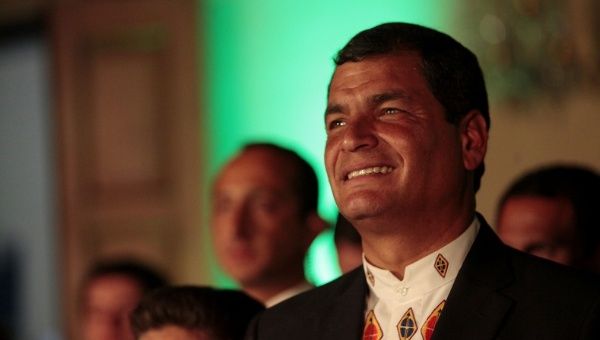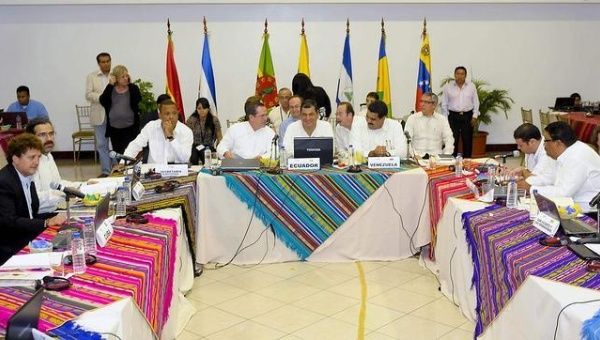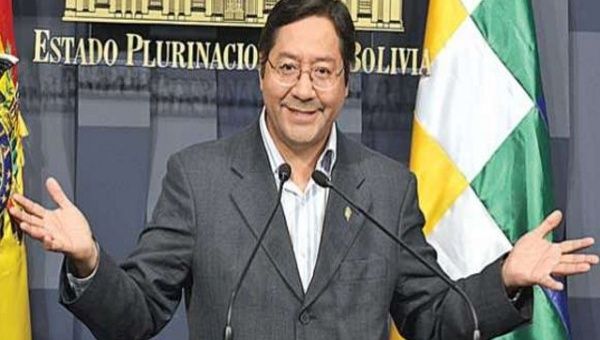O advogado brasileiro Paulo Abrão tomou posse nesta quarta-feira (11) como presidente do Instituto de Políticas Públicas em Direitos Humanos do Mercosul (IPPDH). Ele foi indicado para o cargo pela ministra da Secretaria de Direitos Humanos da Presidência da República, Ideli Salvatti, em novembro do ano passado, durante Reunião de Altas Autoridades em Direitos Humanos do Mercosul, em Buenos Aires. Paulo Abrão é mestre em Direito, foi secretário Nacional de Justiça e tem amplo histórico de militância em Direitos Humanos. Ele sucederá o argentino Victor Abramovich. O Instituto de Políticas Públicas em Direitos Humanos do Mercosul é um organismo regional criado pelo Mercosul em 2009, com sede em Buenos Aires. O IPPDH tem como funções principais a cooperação técnica, a pesquisa, a capacitação e o apoio à coordenação de políticas em direitos humanos da região. Esta é a primeira vez que o instituto será comandado por um brasileiro. Segue abaixo entrevista concedida ao site da SDH/PR:
Quais suas perspectivas para os próximos 2 anos à frente do IPPDH?
Preservar e consolidar as atuais conquistas do IPPDH e avançar. O Instituto é um grande esforço de integração de visões políticas entre os governos e povos dos países membros e associados do MERCOSUL que desejam expressar que os direitos humanos são a base fundamental de nossas nações. Trata-se de um legado importante que, inclusive, precisa ser difundido para outros continentes. Nossa perspectiva, portanto é essa: continuar a mobilizar e fornecer a melhor capacidade técnica para assessorar os desenvolvimentos internos de cada país, buscar intensificar a integração e cooperação entre nós, mas também difundir e transferir essa perspectiva, boas práticas e experiência acumulada pelos nossos países para outras regiões.
Sua indicação se deu num contexto de convergência mercosul-unasul. Como vc avalia essa aproximação?
Temos em comum viver em Estados de Direito em contínua construção. Com um conjunto de desafios partilhados. Quanto mais abrangentes e qualificadas forem as políticas públicas e quanto mais houver cooperação entre os países maior será a probabilidade de efetividade dos direitos. O IPPDH deve permanecer sob integral disposição das autoridades de nossos governos a fim de traduzir essa clara vontade de convergência política e social cada vez mais em uma cooperação concreta em termos de programas integrados. Esse processo progressivo passa necessariamente pela convergência Mercosul-Unasul.
No que diz respeito ao tema da memória e verdade, onde será possível avançar?
A base comum de uma história de governos autoritários e opressores acabam por reforçar os processos de identidade entre os povos nossos países. Creio que a construção de um padrão comum de respostas institucionais para as graves violações de direitos humanos no passado (e no presente) é uma contribuição civilizatoria que nossa região pode e tem para oferecer. Os avanços dependem sempre de uma simbiose entre dinâmicas de mobilização social e respaldo governamental para as autoridades de direitos humanos. É certo que podemos avançar muito, resta saber em que grau essa simbiose ocorrerá daqui para frente, a partir do que já foi conquistado.
Quais os temas vc elencaria como prioridades?
Em matérias de direitos humanos a prioridade deve ser sempre os grupos sociais mais vulneráveis, independentemente do tema em que estejam inseridos. Ao fim e ao cabo é preciso dar conta dessas prioridades e de todo o mais. Mas são as nossas autoridades governamentais em direitos humanos, legitimadas pelos processos democráticos que lhes escolheram, juntamente com os movimentos sociais organizados que apontarão os temas prioritários. E o IPPDH deve continuar como elemento mobilizador de inteligências, animador contra retrocessos, indutor de avanços, formulador de ideias, facilitador de diálogos e executor prático do que lhe for incumbido. Eu tenho a honra de suceder o incrível trabalho de Vitor Abramovich, isso vai facilitar as coisas.
O que podemos esperar do primeiro brasileiro à frente do Instituto?
Capacidade de indignação diante das injustiças, perseverança, fraternidade e compromisso de vida com o desenvolvimento humano dos povos latino-americanos. Todas as nossas políticas devem ser implementadas com participação social e colocar a pessoa humana no centro das atenções. Também sou entusiasta por conectarmos cada vez mais os temas dos direitos humanos, do desenvolvimento e da qualidade dos serviços públicos.









